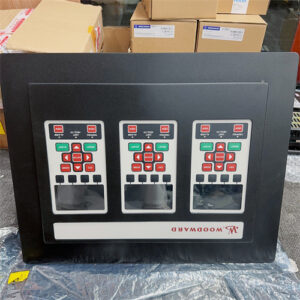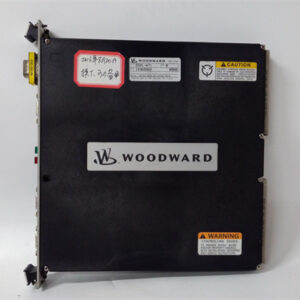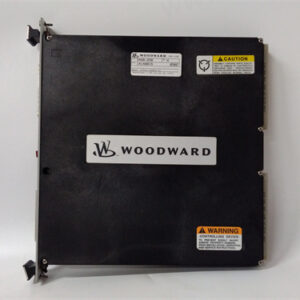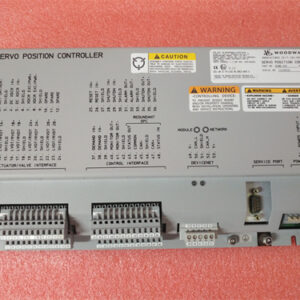الوصف
The WOODWARD 9907-2142 is a specific model within Woodward’s extensive line of control products. Based on available information, it is an electronic load sharing and speed control module. This particular part number likely refers to a variation of the Woodward 2301A Electronic Load Sharing and Speed Control from the 9907 Series.
WOODWARD 9907-2142: Electronic Load Sharing and Speed Control Module
The WOODWARD 9907-2142 is an electronic control unit designed to manage the speed of prime movers (like engines or turbines) and facilitate load sharing in multi-unit power generation or mechanical drive applications. It offers sophisticated control capabilities beyond what purely mechanical-hydraulic governors can provide on their own.
Product Overview
This module acts as a controller that can sense engine/turbine speed and load, then issue precise control signals to an actuator (e.g., an EGB actuator or similar) to regulate fuel or steam flow. Its primary strength lies in enabling multiple generating units to operate efficiently in parallel, distributing the load evenly and maintaining system stability.
- Product Type: Electronic Load Sharing and Speed Control Module
- Manufacturer: Woodward
- Part Number: 9907-2142 (likely a specific variant of the 2301A LSSC 9907 Series)
- Function: Provides precise speed governing, with advanced capabilities for isochronous and droop load sharing between multiple prime movers.
- Application: Used with diesel, gas, and dual-fuel engines, as well as steam and gas turbines, typically in power generation or mechanical drive systems.
- Integration: Connects to an external actuator (e.g., EGB-P, PSG, etc.) that physically manipulates the fuel or steam valve.
- Control Modes: Supports both isochronous (constant speed/frequency) and droop (speed drops with increasing load) operation for load sharing.
- Certifications: Often UL Listed and designed to meet relevant industrial standards.
Detailed Product Description
The WOODWARD 9907-2142 is part of Woodward’s established line of electronic controls that offer superior performance and flexibility compared to traditional mechanical governors.
Here’s a breakdown of its features and how it functions:
- Electronic Control with Actuator Interface: Unlike mechanical-hydraulic governors that are self-contained, this is an electronic controller that requires an external actuator. The 9907-2142 processes speed and load signals, calculates the necessary control action, and sends an electrical signal (often proportional current, e.g., 20-160 mA) to the actuator. The actuator then converts this electrical signal into mechanical motion to control the prime mover’s fuel or steam valve.
- Precise Speed Governing: It provides accurate and responsive speed control for a wide range of prime movers, ensuring stable operation under varying load conditions.
- Load Sharing Capabilities: This is a core function. The module can:
- Isochronous Load Sharing: Maintain a constant system frequency (or speed) when multiple units are operating in parallel, ensuring that each unit takes its share of the load. This is vital for stable grid operation.
- Droop Load Sharing: Allow for a deliberate, proportional decrease in speed as the load increases. This mode is inherently stable for parallel operation and prevents “hunting” between units. The module can typically be configured for variable droop percentages.
- Robust Design: Electronic controls like the 9907-2142 are built to withstand the harsh conditions of industrial environments, including vibrations, temperature extremes, and electrical noise.
- Versatile Application: Its ability to control different types of prime movers (diesel, gas, steam, dual-fuel) makes it highly versatile for various power generation, marine, and industrial mechanical drive applications.
- Manual and Remote Control Options: Being an electronic unit, it typically allows for both local (manual) adjustments and remote speed/load setpoint changes, facilitating integration with SCADA systems or Distributed Control Systems (DCS).
While detailed specifications specific to the 9907-2142 are not immediately available without a dedicated datasheet, its association with the 2301A LSSC 9907 Series indicates a high level of performance and reliability for electronic governing and load sharing.
Technical Specifications (General for 2301A LSSC 9907 Series)
Typical Applications
The WOODWARD 9907-2142 is commonly found in complex industrial and marine applications where precise speed control and coordinated load sharing are essential:
- Synchronizing Generator Sets: In power plants, data centers, hospitals, or remote power stations where multiple generator sets (driven by engines or turbines) need to synchronize and share electrical load on a common bus.
- Co-generation Plants: Systems where a single prime mover (or multiple) produces both electricity and usable heat, requiring precise control to optimize efficiency and load distribution.
- Marine Propulsion: For multi-engine marine vessels where engines need to operate in parallel to drive propellers or generators, ensuring smooth power delivery and fuel efficiency.
- Industrial Drives: Large compressors, pumps, or other mechanical loads driven by multiple prime movers that require coordinated speed and load management.
- Upgrade & Modernization: Used to upgrade older mechanical governing systems to modern electronic control, offering enhanced performance, remote control, and diagnostic capabilities.

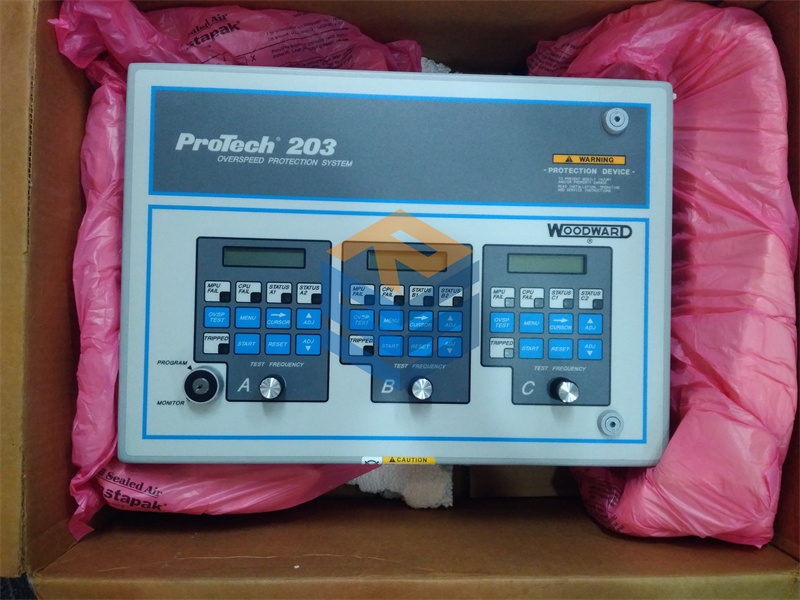

 +86 15340683922
+86 15340683922 +86 15340683922
+86 15340683922